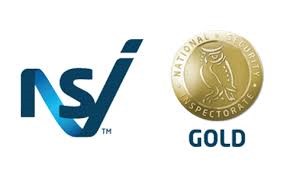How the UK Procurement Act 2023 affects security providers and how to ensure compliance
When choosing a security provider, businesses and public sector entities need confidence that their chosen company operates fairly, pays staff appropriately, and delivers a reliable service. However, the procurement process has not always guaranteed these standards. Some providers have secured contracts by cutting costs in ways that compromise service quality, such as underpaying security officers or bidding at unsustainably low prices.
To address these issues, the UK Procurement Act 2023 introduces new measures to ensure greater transparency, fair competition, and better oversight of public sector contracts. The Act, which came into effect on 24 February 2025, has significant implications for security providers, particularly those bidding for public contracts.
We’ve listed the key changes and how businesses can check whether their security provider is compliant.
Key impacts on security providers
1. Stricter compliance measures
Security firms bidding for public sector contracts must now adhere to enhanced vetting procedures. The National Security Unit for Procurement (NSUP) has been established to assess suppliers against national security risks. This means that providers failing to meet these requirements could be excluded or debarred from bidding on public contracts.
2. Fair and transparent pricing
The Act mandates that tenders must reflect genuine service costs, preventing companies from securing contracts through artificially low bids. Security providers must now demonstrate that their pricing allows for fair wages, training, and operational costs, ensuring sustainable service delivery.
3. Greater accountability and monitoring
Security contracts will be subject to increased scrutiny, with contracting authorities required to publish contract performance notices. Poor performance, failure to meet fair pay standards, or non-compliance with employment laws could result in contract termination or future exclusion from public procurement.
How to check if a security provider is compliant
To ensure a security provider meets the new legal requirements, businesses and procurement teams should:
Review tender pricing:
Extremely low-cost contracts may indicate non-compliance with fair pay laws.
Check for accreditations:
Look for industry certifications such as the SIA Approved Contractor Scheme (ACS), which ensures compliance with ethical employment and service standards.
Request proof of fair wages:
Verify that security officers are paid at least the National Minimum Wage or industry-standard rates.
Monitor performance reports:
Public sector contracts now require regular performance assessments, which can reveal a provider’s compliance record.
Consult the NSUP guidance:
The National Security Unit for Procurement (NSUP) provides resources to assess whether a security provider meets new security and compliance requirements.
The importance of the Procurement Act 2023
This legislation marks a major step forward in ensuring ethical, secure, and transparent procurement. For security providers, it means a greater focus on compliance, fair employment, and accountability. For businesses and public bodies, it ensures that contracts are awarded to trustworthy and responsible providers, improving service quality and worker conditions.
For ethical security providers, the reforms create a level playing field, where companies that invest in quality service and fair employment are rewarded.
For more details, visit the Competition and Markets Authority.
Our stance on the new law
As a company that has always prioritised fair pay, quality service, and full compliance with industry standards, we welcome these changes. We are proud of our accreditations, including our SIA Approved Contractor Pacesetter status, and our commitment to ethical business practices.
This new legislation ensures that all providers are held to the same high standards, creating a fairer and more transparent procurement process.
If you would like to talk further about our services and how we already work within the Procurement Law, then please call us on 0800 6123 280 and one of our dedicated team members will be happy to help.


